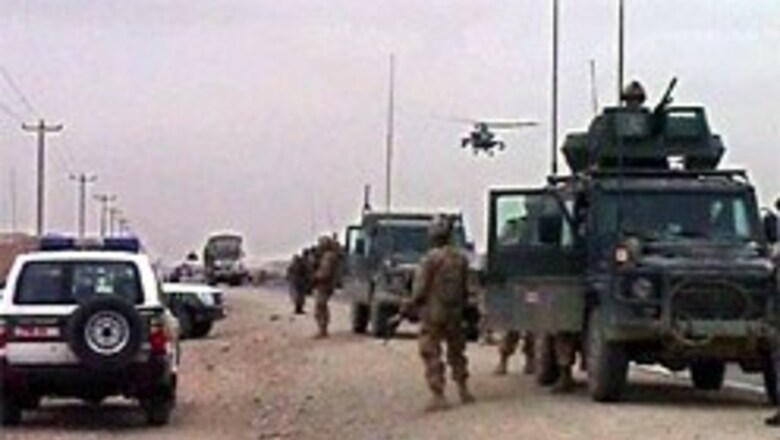
views
Islamabad: A peace deal between Pakistan's government and Islamic militants in North Waziristan has created a virtual Taliban mini-state where mullahs dispense justice and fighters are launching cross-border attacks into neighboring Afghanistan, a think tank said.
The US military confirmed that attacks have risen sharply since the deal was reached earlier this year despite concerns it would give a freer hand to Taliban and al-Qaeda-linked militants who fled to Pakistan after the fall of the hardline regime in Afghanistan in 2001.
''Over the past five years, the (President Gen. Pervez) Musharraf government has tried first brute force, then appeasement. Both have failed,'' Samina Ahmed of the International Crisis Group that published the report said Monday.
That grim assessment came against the backdrop of an alarming surge in violence in southern and eastern Afghanistan this year that has killed close to 4,000 people, threatening the Western-backed project to build rebuild the country and establish democracy.
Government policy has allowed militants ''to establish a virtual mini-Taliban-style state,'' the Crisis Group said, citing reports of pro-Taliban militants attacking music, video and CD stores, closing barber shops, imposing taxes and establishing courts to impose summary justice.
The Pakistani government rejected the Brussels-based group's report as ''baseless allegations'' and described the violence across the border as Afghanistan's internal problem.
''There are no camps or centers where terrorists are being trained in the tribal areas,'' said Arbab Mohammed Arif Khan, secretary for law and order in Pakistan's semiautonomous tribal regions.
Pakistan has deployed about 80,000 forces at the Afghan border and launched numerous military operations against al-Qaeda-linked militants in the past five years, but with mixed results.
In North Waziristan, heavy-handed offensives this year left hundreds dead and stoked local anger and support for pro-Taliban religious leaders.
The peace deal, inked in September after a June cease-fire, capped the fighting in Pakistan. But the Crisis Group reported ''increasingly severe cross-border attacks on Afghan and international military personnel, with the support and active involvement of Pakistani militants.'' It said the ambivalent approach of the Musharraf government was ''destabilizing Afghanistan.''
A senior tribal elder confirmed the Taliban had gained sway in North Waziristan. Tribesmen were bypassing the government and traditional tribal leaders and approaching their pro-Taliban leaders in the towns of Miran Shah and Mir Ali to settle land and money disputes.
Religious students were even helping to direct traffic, he said.
The elder requested anonymity because he had been threatened by militants for meeting government leaders.
In Afghanistan, US military spokesman Lt. Col. Paul Fitzpatrick said US and Afghan security posts along the eastern border with Pakistan had seen a spike in attacks from 17 in May, to 50 in August and 57 in October - a more than threefold increase. Most of the attacks were in Paktika province, which lies opposite North and South Waziristan.
Attacks leveled off to about one a day in November, possibly because of the winter weather settling in, Fitzpatrick said.



















Comments
0 comment